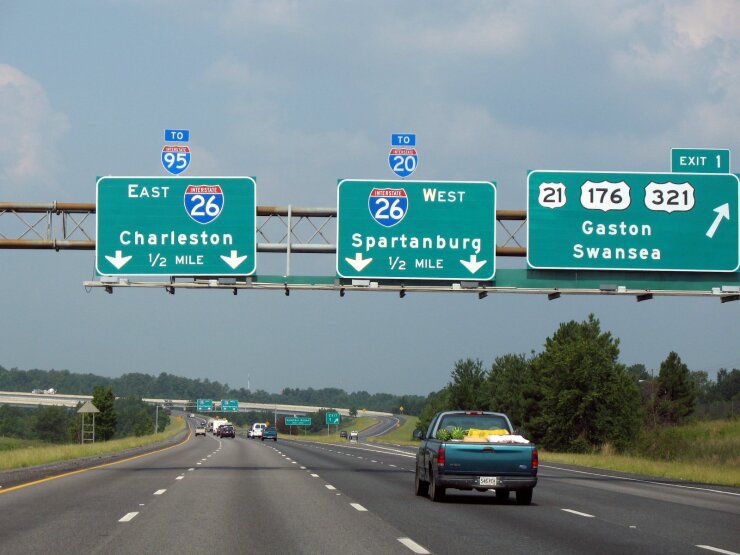South Carolina state senators will take up a gasoline tax increase when the General Assembly returns next week from its Easter recess despite a veto threat from the governor.
Gov. Henry McMaster wants to fund roadwork with a $1 billion bond package rather than back the proposal in the Senate to raise the gasoline tax by 12 cents over six years or a measure approved by the state House in early March that would raise the gasoline tax by 10 cents over five years.
The Senate discussion was delayed late last week to give senators time to work out their differences with the gas tax bill, said Senate Majority Leader Shane Massey, a Republican from Edgefield.
"We still have a long way to go, but we're in a much better position now than we have been ever before," Massey said.
McMaster said lawmakers should drop the idea of raising the fuel tax and instead amend a higher education bond bill now in the House to redirect the entire authorization in it -- up to $1 billion -- for highways.
The projects funded in the current bond bill are important but the need is not as urgent as the highways, he said.
"Understanding that our need for road repair has gone from important to critical to urgent, I believe that this should be our top priority for spending," McMaster said.
“I will veto any bill sent to me that increases the burden of gas taxes levied on the families and businesses of South Carolina,” he said. “I believe it would be a disservice to taxpayers to raise gas taxes for a dysfunctional system and expect a result different from what we’ve been getting, especially when many people can barely keep gas in their vehicles now.”
Some 25% of the $600 million per year that the state collects in fuel taxes never makes it to the pavement but goes to other purposes, he said.
Funding from the proposed bond issue would “go directly to — and only to — the speedy repairing of our primary system of roads and bridges,” McMaster said.

Borrowing is not the preferred or sustainable solution to funding transportation infrastructure, McMaster said.
“But in the spot we are in now, unless we want to burden our working people with yet another tax, it is our only option,” he said.
A report in early February by the South Carolina Department of Transportation said an additional $11 billion would be needed over the next 10 years to repair the state’s crumbling roads.
South Carolina’s tax on gasoline and diesel fuel of 16.75 cents per gallon, which has not been increased in 30 years, is the second lowest in the nation. Alaska has the lowest, with a state gasoline tax of 12.25 cents per gallon and 12.95 cents per gallon for diesel.
The proposal in the Senate to raise South Carolina’s gasoline tax by 2 cents a year over six years would bring in an additional $800 million per year when fully implemented.
The measure adopted by the House in February to raise the gasoline tax by 2 cents per year for five years would generate an additional $600 million per year and cost the average motorist about $60 per year, according to the state legislative budget office.
The House bill would also add a two-year registration fee of $60 for hybrid vehicles and $120 for electric vehicles. The sales tax on vehicles sales would be raised to a maximum of $500 from the current $300 cap.
"We appreciate the House stepping forward," said state transportation secretary Christy Hall after the vote. "The needs are tremendous. This is very much needed."





